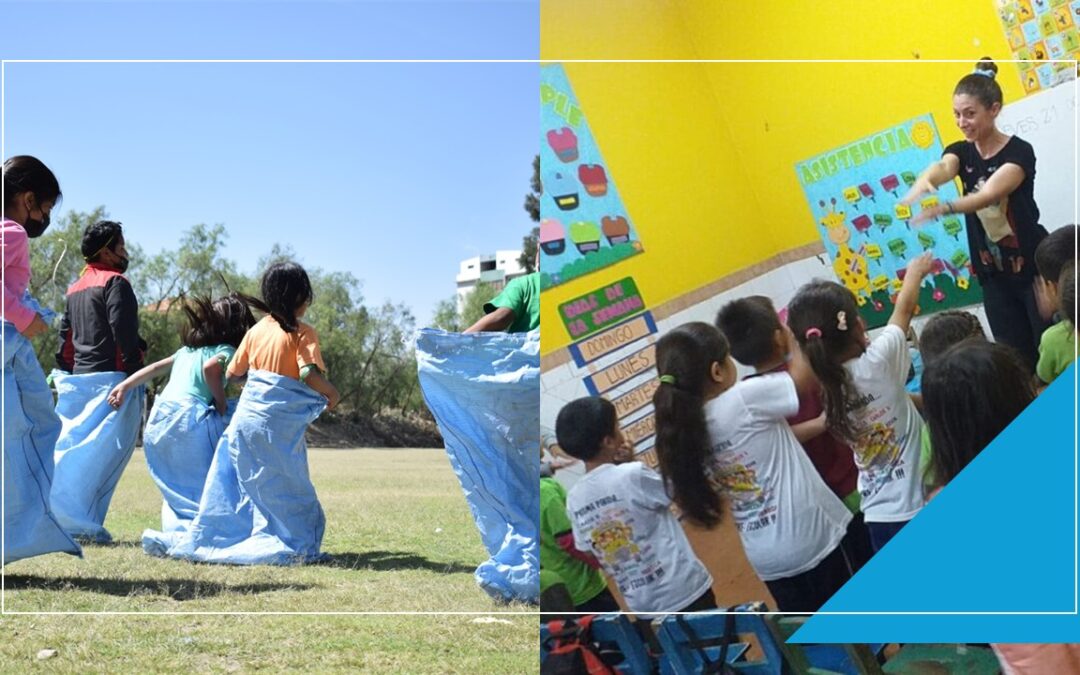
Jun 13, 2025 | Sociale, Testimonianze di Vita, Vite vissute
There are places in the world where fraternity is cultivated with a purpose. One of these is MilONGa, a project that has established itself as a key initiative in the field of international volunteering, aiming to promote peace and solidarity through concrete actions.
MilONGa offers a concrete alternative: to experience solidarity firsthand through experiences that transcend cultural, social and geographical boundaries.
Its name, which stands for “Mille organizzazioni non governative attive” (Thousand Active Non-Governmental Organizations) is much more than a project. It is a network that connects the youth with organizations in various parts of the world, giving them the opportunity to actively engage in social, educational, environmental, and cultural initiatives. Since its beginning, the program has grown by weaving a global community that recognizes common values: peace, reciprocity and active citizenship.
What distinguishes MilONGa is not only the diversity of its destinations or the richness of its activities but the type of experience it offers: a deep immersion in local realities, where each volunteer comes not to “help” but to learn, exchange, and build together. It is a comprehensive training journey that transforms both those who experience it and the communities that welcome them.
The countries where these experiences can take place are as diverse as the youth who participate, covering various latitudes: Mexico, Argentina, Brazil, Bolivia, Colombia, Ecuador, Paraguay, Uruguay, and Peru in America; Kenya in Africa; Spain, Italy, Portugal, and Germany in Europe; Lebanon and Jordan in the Middle East.
In each of these places, MilONGa collaborates with local organizations committed to social development and building a culture of peace, offering volunteers service opportunities that have a real and lasting impact.
Behind MilONGa is a solid network of international partnerships. The project is supported by the AFR.E.S.H.,initiative co-financed by the European Union, which allows it to strengthen its structure and expand its impact. It is also part of the New Humanity ecosystem, an international organization committed to promoting a culture of unity and dialogue among peoples.
A Story that Leaves a Mark
Francesco Sorrenti was one of the volunteers who traveled to Africa with the MilONGa program. His motivation was not just the desire to “help,” but a deeper need to understand and connect with a reality he felt was distant. “It was something I had inside me for years: a deep curiosity, almost an urgency to see with my own eyes, to try to get closer to a reality that felt far away,” Francesco recounts about his experience in Kenya.
His experience in Kenya was marked by moments that transformed him. One of these was a visit to Mathare, a slum in Nairobi. “When one of them told me: ‘Look, this is where my parents live. I was born here, my children were born here. I met my wife here and we will probably die here,’ I felt an overwhelming sense of helplessness. I realized that before doing anything, it was necessary to stop. That I wasn’t there to fix things, but to observe rather than turn away.”
He also experienced moments of joy while working with the children at a local school. “The joy of these children was contagious, physical. There was no need for many words: just being there, playing, sharing. It was then that I understood that it’s not about doing great things, but simply about being present,” he shares.
Two years after his experience, Francesco still feels its impact. “My way of seeing things has changed: I now value what really matters more and have learned to appreciate simplicity. This experience has also left me with a form of strength, an inner tenacity. You carry a kind of resilience, like what I saw in the eyes of those who, at dawn, wanted to do everything even if they had nothing.”
Meetings that Multiply Commitment
In April 2025, MilONGa participated in the international congress “Solidarity in Action, Builders of Peace” held in the city of Porto, Portugal. The meeting, jointly organized by AMU (Action for a United World), New Humanity and the Focolare Movement of Portugal, brought together young leaders from around the world linked to the Living Peace International and MilONGa programs.
For three days, Porto was transformed into a laboratory of dialogue and action, where young participants exchanged experiences, shared good practices, and built common strategies to strengthen their role as peace agents. MilONGa played a key role, not only through the active participation of its volunteers but also by creating synergies with other youth networks engaged in social transformation.
One of the most significant moments of the congress was the collaborative workshop space, where participants imagined and designed concrete projects with local and global impact.
MilONGa is defined not only by what it does but by the horizon it proposes: a fairer, more united and more humane world. A world where solidarity is not a slogan but a daily practice; where peace is not a utopia but a shared responsibility.
Manuel Nacinovich
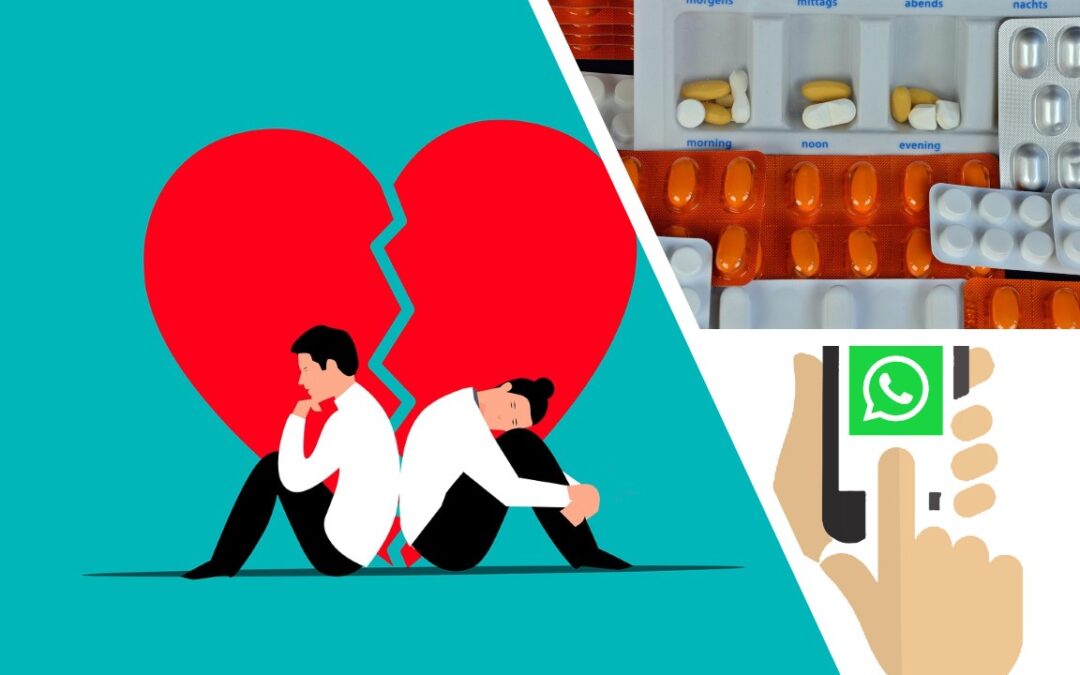
May 30, 2025 | Testimonianze di Vita, Vite vissute
A message!
It was the birthday of a dear friend with whom I had shared ideals, joys, and sorrows. But it had been a long time since I had written to him or seen him. I hesitated a little: I could send him a message, but I didn’t know how he would take it. The Word of Life encouraged me: “Lord, you know everything; you know that I love you” (Jn. 21:17). He replied shortly later: “What a joy to receive your greeting.” And a dialogue began: messages went back and forth. He told me about himself. He was satisfied with his job, had an excellent salary and confided that he wanted to come visit me. I encouraged him and made myself available to welcome him and help organize his stay. One more reason to keep him in mind… and not wait another year to send him a message.
(C. A.- Italia)
Crushed by pride
I could forgive Miguel for the evenings he spent in the tavern, but not for the infidelity he once confessed. I was the good wife and mother, the victim. However, ever since he had been spending time with Father Venancio and others from the parish, my husband seemed like a different man: he was more present at home, more affectionate with me. I, on the other hand, remained distant every time he suggested we read the Gospel together and try to put it into practice. Once, because it was his birthday, I agreed to go with him to a family meeting. That was the first of many. One day, a phrase struck me: “Build peace.” How could I do that, having discovered how selfish, full of misery and resentment I was? Pride kept me from asking Miguel for forgiveness, while he, in our 28 years of marriage, had asked me for forgiveness more than once. Still, I searched for the right moment. Until one day, at a family group meeting, after asking God for help, I managed to share our experience as a couple and ask Miguel for forgiveness. That day, I felt a new, true love for him be reborn.
(R. – Mexico)
Caring for Others
Since I’ve been spending time in Havana, neck-deep in the daily struggles of our neighbourhood residents amid the country’s severe economic crisis, I’m still not used to the timely interventions of Providence. Among the many, this is the most recent. Someone from our community told me about a substantial donation of quality medicines, all related to the treatment of nervous disorders. I was a bit perplexed since they didn’t match the usual categories of medications needed by the poor who come to us but I went to collect them anyway. Then I remembered that once a month, on Monday mornings, a psychiatrist visits our neighbourhood to provide free consultations to those in need. So, at the first opportunity, I contacted him and showed him the list of medicines. As he read through, his face lit up: “These are exactly what I was looking for!” he exclaimed, astonished.
(R.Z. – Cuba)
Compiled by Maria Grazia Berretta
(taken from The Gospel of the Day, New City, year X– no.1 May-June 2025)
Photo: ©Mohamed Hassan – Wälz / Pixabay
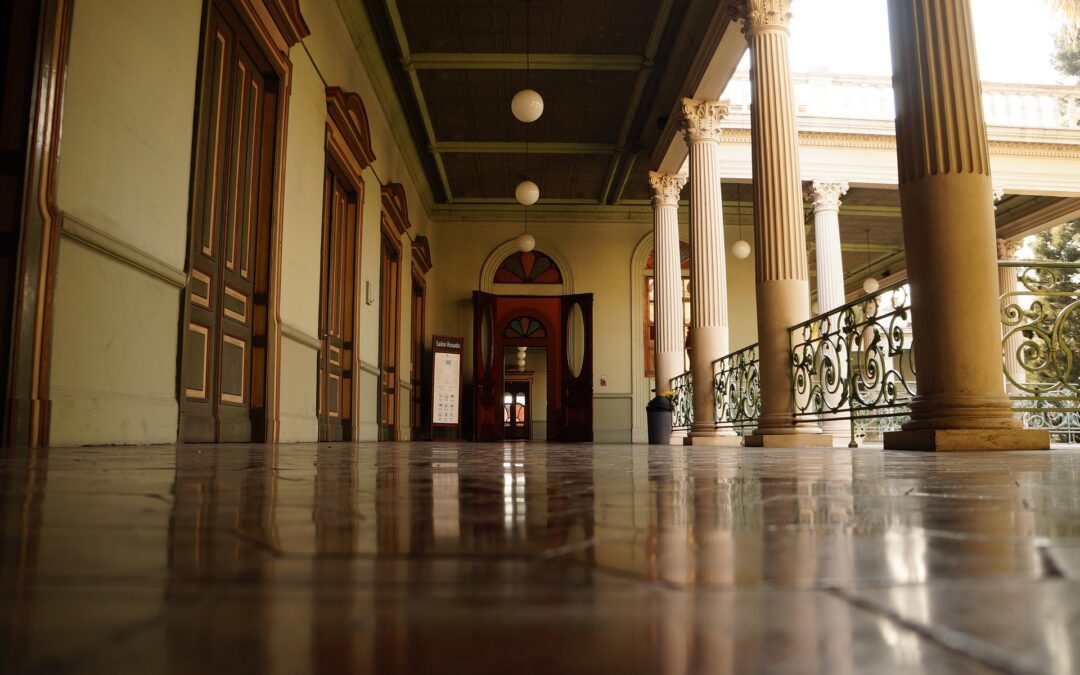
Apr 29, 2025 | Sociale, Testimonianze di Vita, Vite vissute
Accepting change
As a “distributor of tasks”, over ten years I had managed, in collaboration with our parish priest, to form the Parish Pastoral Council and the Sacristan group. As time went on, I realized my role was shrinking. Many people, previously less active, came forward to carry out various tasks and I chose to step aside to leave them space. Initially, I accepted my reduced role with serenity. Later, however, feeling excluded, I understood how easy it is to become attached to a role, but also how important it is to know when to let go. Sometimes, the Lord invites us to take a step back to prepare us for something new. It’s not easy, because it means accepting change and trusting. Today, although I feel a little on the side-lines, I remain willing to make my contribution if and when I am asked. I am convinced that every service, even the smallest, has a value and that every phase of life is an opportunity to grow in faith and love for others.
(Luciana – Italy)
God sees me
When I lived in Brussels, I sometimes went to Mass in the church of St. Michel’s College. To get there, you had to walk along long corridors with an endless series of classrooms on either side. Above the door of each one, there was a sign that read: God sees you. It was a warning to the boys that reflected a message from the past, expressed negatively: “Do not sin because, even if other people do not see you, God sees you”. Instead, for me, perhaps because I was born in another era or because I believe in his love, it resonated positively: “I do not have to do good things in front of men so that they see me, or to be praised or thanked, but live in the presence of God”. In the Gospel of Matthew 23: 1-12 speaking to scribes and Pharisees who love to show themselves off, Jesus invited them not to be called “teachers” but to have only one concern: to act under the gaze of God who reads hearts. I like this: God sees me, as the signs in the boarding school said; God reads our hearts and that must be enough for me.
(G.F.- Belgium)
The first step
My mother and her sister had fallen out over a matter of inheritance. They hadn’t seen each other for a long time and the rift grew wider, especially since we lived in the city and my aunt in a remote mountain village. This state of affairs lasted until the day, stimulated by the Words of Jesus: “If you are about to present your offering at the altar, and there you remember that your brother has something against you, leave your offering there before the altar and go first to be reconciled with your brother; then return and present your offering”, I plucked up my courage. I sought the right moment and then broached the subject with my mother. I managed to convince her to accompany me to visit my aunt. During the trip we kept quite silent so all I did was pray for everything to go well. In fact, things took place in the simplest way: taken by surprise, my aunt welcomed us with open arms. But we had to take the first step.
(A.G. – Italy)
Curated by Maria Grazia Berretta
(taken from The Gospel of the Day, Città Nuova, year X– no.1 March-April 2025)
©Photo: Gerson Rodriguez – Pixabay
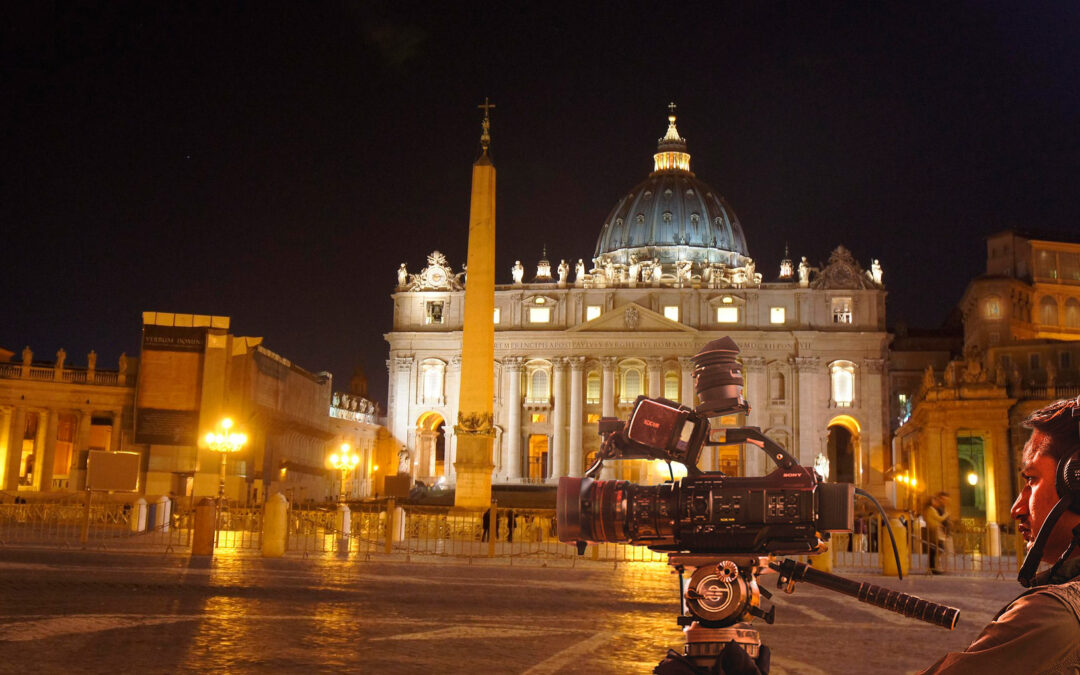
Apr 5, 2025 | Sociale, Vite vissute
For over two years, on the initiative of NetOne, the international network of communicators of the Focolare Movement, a group of communication professionals, has been meeting online every month to explore themes related to the Synod of Bishops, in particular on synodality and communication. Key elements during these meetings include listening, silence, testimony and fraternal communication. In addition to these regular sessions, two webinars have taken place over the past two years: the first in April 2024 (an in-depth analysis is available online here) and the second in February 2025 entitled, “What kind of communication for synodality?” (VIDEO) This event was followed in various parts of the world with the participation of numerous communication experts connected from several countries.
Alessandro Gisotti, deputy director of Vatican Media, opened the series of interventions by citing three essential terms for a good communicator: Communication, Action and Community. He said, “In this Holy Year, we need a synodal communication that is able to accompany the people who will come, without the presumption of wanting to lead them but available to listen to them, to accompany them, to share a part of the journey together”.
From the United States, Kim Daniels, Professor at Georgetown University in Washington DC, Coordinator of the Synod of Study Group 3 explained, “Mission in the digital environment – our goal is to offer actionable recommendations to the Holy Father for the improvement of the Church’s mission in this digital culture, ensuring that it remains firmly rooted in our call to meet people wherever they are, leading them towards a deeper communion with Christ and with each other”.
Pál Tóth, a Professor at the Sophia University Institute in Loppiano, spoke from Hungary, explaining that “healing the deep wounds of the globalized world requires transversal collaboration including with those whose views differ from our own. The idea of differentiated consensus promotes a new type of social relationship: we collaborate for the realization of some values while remaining on different platforms for others”.
The starting point of the Synod is those on the margins. This emerged from the experience of Muriel Fleury and Beatrice Binaghi, respectively Head of Communication and Social Media Officer at the Dicastery for Integral Human Development. “Speaking for those who are exploited or marginalized by dominant processes means making these people visible. Without these countercurrent voices, everything would favour those who dominate, because silence supports those who mistreat, enslave, exploit, or render too many men and women invisible “. Binaghi described the collaboration network created among the “border bishops” responsible for migratory pastoral care in Colombia, Costa Rica and Panama, especially to address the critical situation in Darien through which hundreds of migrants pass every day. “Dialogue and communication have created communities, and the work that was previously fragmented is now more synergistic and impactful”.
The actress Stefania Bogo was asked to give two moments of reflection through an artistic reading of selected passages from the recent encyclical of Pope Francis, Dilexit nos and Chiara Lubich’s “The attraction of modern times”.
Erica Tossani, of the Presidency of the Synodal Assembly of the Italian Church, explained how important it is to listen, that “it is not merely a passive action, a silence waiting to be filled by the words of others. It is an active attitude that involves attention, discernment and a willingness to be challenged. Without listening, communication degenerates into polarization and sterile opposition”.
The experiences of synodality included that of Paolo Balduzzi, correspondent for the Italian Rai 1 program “A sua immagine”. He explained, “The stories told arise from a dialogue shared with the entire editorial team. For me, every interview is an encounter. And synodality begins with this encounter with my interlocutor, that is, entering into their story, into their lived experience and together seeking to grasp the most essential aspects of their story”.
The story of Mariella Matera, blogger of Alumera, a space for evangelization on social media, is the story of a communicator fascinated by the idea of transmitting the Gospel through the internet. She asked herself, “How can I be a little bridge between the web and Christ? In the Calabrian (southern Italy) dialect, the word Alumera refers to the old type of oil lamp. Just as the lamp, as long as it has oil, does not go out, so too I, as long as I have the love of Christ in me, cannot be silent”.
In conclusion, Anita Tano, head of communication for United World Project-NetOne Argentina recounted the experience of Genfest 2024 in Brazil, the youth event of the Focolare Movement which had the theme Together to Care. Featuring cultural exchanges, art and workshops, the aim was to recognise communication as a tool to take care of “one’s own life, that of others and that of the planet”. A message that emphasized the difference between simply being “connected” and being truly “united.”
The live broadcast was moderated by Enrico Selleri, presenter and author of the Italian Church broadcasters Tv2000 and InBlu2000, along with Sara Fornaro, editor-in-chief of the web version of the Italian magazine Città Nuova. The event was promoted by NetOne together with the General Secretariat of the Synod of Bishops, the Dicastery for Communication, the Dicastery for the Service of Integral Human Development, Vatican Media, the Synodal Way of the Church in Italy, TV2000, InBlu2000 and SIR (of the Italian Episcopal Conference), the Sophia University Institute, Weca (Association of Italian WebCatholics), the Città Nuova Editorial Group and the Pontifical University of the Holy Cross.
For more information and to stay in touch: net4synodcom@gmail.com
www.youtube.com/@SynodalCommunicationNetwork
Lorenzo Russo
Photo: © Pixabay
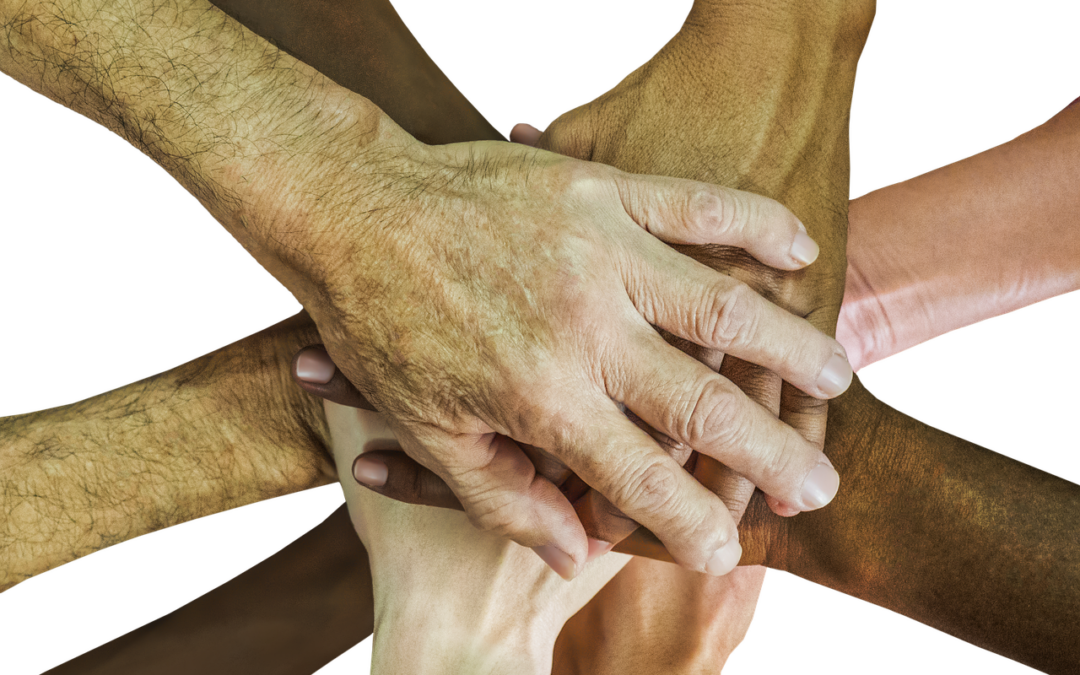
Oct 30, 2024 | Testimonianze di Vita, Vite vissute
In the Waiting Room
A few months ago, I was diagnosed with a tumour. The doctor suggested starting with an alternative treatment and then finishing with radiotherapy.
On the first day of my radiotherapy cycle, I found myself in a large waiting room, full of patients, heads down. I checked in by presenting my magnetic card, standing because there were no more seats. That was the most intense moment, where I embraced and accepted the pain this situation caused me.
On the second day, I asked God for strength and began talking first with one, then two and even three other patients, asking where they were from and how their journey had been, as they came from various places. Day by day, the waiting room became a place of joy. The atmosphere changed – love, patience and calm filled the air. We even gave each other nicknames based on famous people.
On my last day of treatment, I brought sweets for everyone and we put on hats to take pictures. Finally, we placed our right hands together in the centre to make a pact of brotherhood: “until death do us part.”
The Director of the service called me to give me the report for my specialist and she said goodbye with a hug and a kiss, saying, “We’ll miss you a lot. You made us laugh so much… I could always hear you from my office.” As I left, I found myself back in the waiting room, everyone was standing and applauding me. Tears started to fall. I waved goodbye and, already out on the street, I said to myself, “How beautiful it is to put the words of the Gospel into practice. With a little love, everything is transformed.”
J.J.A
The Employee
At the factory, we needed someone to do the cleaning: the offices, kitchen, bathrooms and other shared areas.
During my working hours, I often have long phone calls and whenever I can, I take the opportunity to go for a walk to spend some time outdoors in the sun. One day, I set out determined to find someone from the area who could help with the cleaning. Just half a block away, I saw an older man who was mowing the grass in front of his house. I approached him, introduced myself and mentioned that we were looking for someone to assist with cleaning. I asked if he knew anyone looking for work.
He looked at me and said that his son could do the job. I replied, “Alright, tell him to come to see me tomorrow.” He then explained that his son had multiple sclerosis. “Tell him to come tomorrow,” I repeated.
The next day, Mauro arrived – a 36-year-old man. He told me that he was part of a research program in which he received a special medication injection once a week, which made him weak the following day. The treatment wasn’t always on the same day each week. He mentioned how hard it was for him to find a job due to this challenge.
Mauro has been with us for five months. Not only does he carry out the agreed cleaning tasks, but he also looks after the garden, maintenance, and other duties.
Reciprocity, giving and receiving, community and valuing each person is the way I want to live and work.
V.C.P.
Edited by Carlos Mana
Photo:© Truthseeker08 – Pixabay
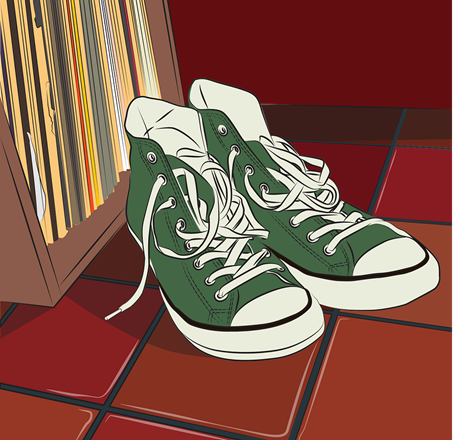
Aug 16, 2024 | Testimonianze di Vita, Vite vissute
At the right time
One day a co-worker of our center had received a gift of a pair of new sports shoes size 43. But who could have possibly needed them? That same day we learn that a 14-year-old boy we know really needed those shoes and that size! He is the son of a friend who was in the hospital at that time. Her other daughter had also visited our center that day and we had learned that they needed clothes and medicine. She made us understand that she is in need of a cell phone to keep in touch with her mother in the hospital. And…we had received one (a phone) a few days earlier! It is impressive to see how there is always “Someone” who provides us with just those ad hoc things which we can then donate!
A bed in two minutes
We were at the final goodbyes of a Sunday spent “as a family” (so to speak because we were surrounded by hundreds of people) with activities to raise funds for our youth. A Venezuelan friend among the first people I met years ago had introduced me to an 18-year-old young man – Jesús. He had told me some of what he had experienced having left Venezuela alone at the age of 16. Two years of adventures, enough to make an action film, with many moments of suspense. For 15 days he had been in Peru. Talking with him I discovered that he was sleeping on a mat on the floor! Diligently he had planned with his first paycheck (he had in fact found a job in Peru immediately) to solve the problem of documents and then think about the bed. At that time I had no solutions, but we promised to stay in touch. Shortly after saying goodbye to him I met one of our co-workers who, without knowing anything about Jesus’ needs, asked me, “So what do we do with that bed?” “But how? Do you still have it?” I was surprised. “Yes!” he said to me. I immediately called back Jesús who was leaving the Center. He joined us immediately, and upon hearing that there was already a bed for him, very strong was the light I saw in his eyes. It had not been two minutes since I had told him that I would try to find a solution!
Free ultrasound scans
Many of the migrants who arrive at our center need medical care and sometimes even diagnostic tests. Recently, another blessing from Heaven occurred: a medical center near us offered us the possibility of performing ultrasound scans for free. They want to give this opportunity to those who do not have the possibility of paying for these examinations. Truly a gift for so many of our patients.
Silvano R. – Perù






